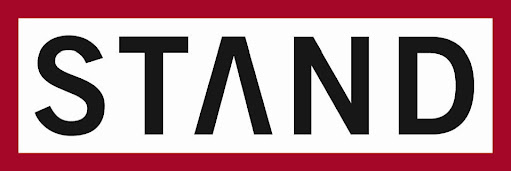 Attention Stand Supporters! Stand is holding a national 1-800-GENOCID(E) Day this Friday, March 20th. Please help us out by calling repeatedly, and recruiting others to do the same! It is now more urgent than ever to push our elected officials to act for Darfur. Sign up here and spread the word!
Attention Stand Supporters! Stand is holding a national 1-800-GENOCID(E) Day this Friday, March 20th. Please help us out by calling repeatedly, and recruiting others to do the same! It is now more urgent than ever to push our elected officials to act for Darfur. Sign up here and spread the word! Stand Chapter Director Evan Cinqmars is excited for you! Watch our latest video blog to find out why.
Khartoum
Khartoum in the capital of Sudan, and name attributed to the current government led by Omar al-Bashir.Khartoum is located in the Northern part of the country and is often associated with the Arab and Islamic world. The Khartoum government has been associated with the Janjaweed and is accused of proliferating the genocide, which has been taking place in the Darfur region of Sudan since 2003.
Omar al-Bashir
Omar al-Bashir is currently the president of Sudan and the National Congress Party. He acceded power in 1989 during a military coup, which ousted the democratically elected Sadiq al-Mahdi. Al-Bashir ended the Second Sudanese Civil war in 2004 with the Comprehensive Peace Agreement (CPA). However, he has since been reprimanded for his support of the Janjaweed, and has recently come under harsh international criticism, including an indictment and a possible arrest warrant from the International Criminal Court (ICC).
Janjaweed
Taken to mean “Devil on horseback” the Janjaweed is an umbrella term given to armed militia groups who have and are currently attacking the Southern and Western region of Sudan (mostly Darfur) and Chad. The Janjaweed receives its funding from the Khartoum government, despite their many denials. Largely consisting of Arab speaking Africans, the Janjaweed are often described as nomads, a term used to describe the age-old conflict between sedentary populations (mostly found in the South) and nomadic tribes (mostly located in the North).
Rebel Groups in Sudan
The number of rebel groups and armies has escalated since the outbreak of the conflict in 2003. With increasing factionalism occurring among many of the groups I will only cover some of the larger and more prominent groups whose names appear more often in literature on the subject.
Sudanese People’s Liberation Army/Movement (SPLA/M): This is a political (SPLM) and militant (SPLA) rebel movement that originated in the South mostly among Christians. Originally led by John Garang, this movement turned political party fought the North (aka: Sudanese government) in the Second Sudanese Civil War, and signed the CPA in 2005. SPLA/M is currently part of the oppositional party within Sudan’s government, and is the main constituent in the semi-autonomous Southern State, whose capital is located in Juba.
Sudanese Liberation Army or Movement (SLA or SLM): Although this rebel group looks like the previous one, it isn’t. The SLA was created in 1992 during the Second Sudanese Civil War. They are a multi-ethnic, secular party that argues for the secession of the South. There has been less literature on this rebel group in recent years because it was forced to retreat in 2006 and has since been unable to effectively reorganize itself.
Justice and Equality Movement (JEM): Led by Khalil Ibrahim, JEM, is once of the most prominent groups since the outbreak of the crisis in Darfur. This group traces its origins to the “Black Book,” a text published in 2000, which argues for more equality for the marginalized groups in Sudan, namely Southerners and Darfurians.
Stand on the Hill: Member of Parliament Justin Trudeau
On February 24th, Stand Parliamentary Engagement Chair Luke Kujawa and Advocacy Director Jackie Bonisteel met with Liberal MP Justin Trudeau. Mr. Trudeau was very responsive to Stand's message, and expressed his willingness to continue working with us going forward.
Upcoming Stand Events
1800Genocid(e) Day (March 20th, all day): Call 1800Genocid(e) and let the Canadian government know you care about Darfur!
Stand Western Presents: Dunks for Darfur (March 21st, 2-5 pm):
*A round robin basketball tournament of teams with 3-5 players
*Free refreshments and snack food, lots of cool prizes!
*Email western@standcanada.org for more information.
Stand UofT Presents: Remembering Rwanda (March 20-22):
*A three day conference focusing on the lessons learned and not learned from the Rwandan genocide. Featuring some of the world's most renowned genocide scholars and genocide activists.
*Visit www.rememberingrwanda15.webs.com for more information.
Stand UBC Presents: UBC Improv (March 20th & 21st, 7 pm):
UBC's annual international improv tournament—a part of IMPULSE: the UBC Improv Festival.
* All profits benefit the Darfur Stoves Project, an organization that helps women displaced by the Darfur conflict.
* Email ubc@standcanada.org for more details.
.jpg)





No comments:
Post a Comment